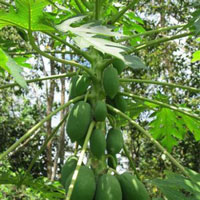You may already know that Orangutan Foundation International (OFI) is dedicated to orangutan research and rehabilitation but you may be surprised to learn that we have expanded our research focus… Continue reading Sustainable Agriculture for Orangutans
Sustainable Agriculture for Orangutans




